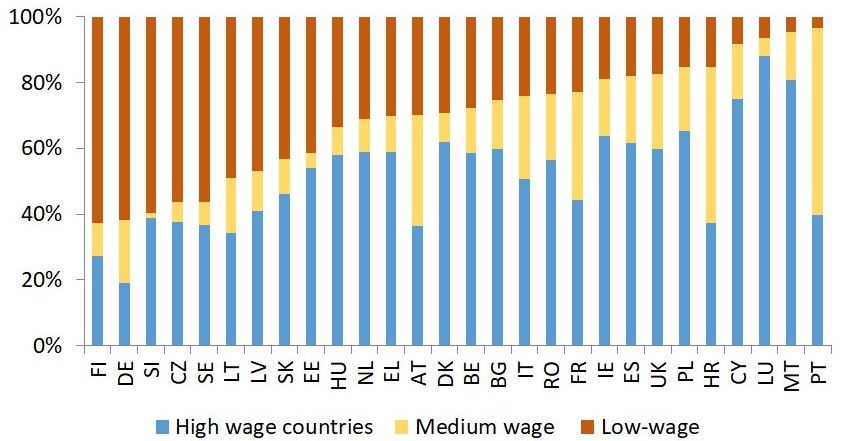13.10.2017
ZPP Conference in the European Parliament “Posting workers and Mobility Package – the challenges for enterprises from East-Central Europe”
Revision of the rules regulating posting workers has caused strong political disagreement in the European Union. It concerns the vision of the future of the EU and the deepening differences in functioning in the European market in accordance with the principles of competitiveness.
The data presented during the debate “Posting workers and Mobility Package – the challenges for the enterprises from East-Central Europe” organised in Brussels by the Members of The European Parliament: professor Zdzisław Krasnodębski and Angel Djambazki in cooperation with ZPP, contradict the often-used arguments of unfair competitiveness and lowering wages by companies from the region of East-Central Europe.
The results of the research carried out by Bruegel Netherlands Institute of International Relations Clingendael and experts from the Labour Mobility Initiative deflate the political reports about social dumping and unfair competitiveness of East-Central European countries.
Zsolt Darvas from Bruegel – the Brussels-based economic think tank – noticed: “Posted workers constitute a small percentage of all of the participants of the labour market in the European Union. Only a minor part of them come from East Europe. The issue of grey zone in the labour market is much more vital.”
Chart: Posting workers according to the wage ranges in 2015. Percentage share in relation to particular countries.
Zsolt Darvas has also emphasised that import of goods, offshoring and labour mobility have much stronger impact on the work places, wages and social conditions in the countries with high wages. If the “the same wage in the same place” resolution is to be introduced, the next step should comprise implementing tariff on goods brought from the EU countries with lower wages, and establishing barriers for the lower-wages countries in offshoring production in the EU countries.
PhD Marcin Kiełbasa from Labour Mobility Initiative agrees with the Bruegel expert. He also highlights that separating facts from fiction and introducing legislative initiatives which would really ensure proper functioning of the European labour market should be the priorities. Posted workers do not take away work places because of lower costs of their work but due to the competitiveness of their services. Also the argument of social dumping is wrong. It is clearly proved in the research of PhD Marek Benio – costs of posting work to the receiving country are higher by even 29% than in the sending country.
Emma Hadrovic from the Danish Road Freight Organisation ITD presented examples from the transport industry. She debunked another myth – posting workers isn’t a challenge only for entrepreneurs and employers from East-Central Europe but for all entrepreneurs providing service in the European Union. The main challenges concerning the changes proposed by the European Commission highlighted by the Danish Organisation were: maintaining the principle of proportionality in legislation, counterproductive and not transparent regulations usage of which would not ameliorate the market; quite the contrary – it would stop its foregoing effective functioning at the same time lowering the competitiveness of European enterprises in the global market.

 ZPP Newsletter
ZPP Newsletter














